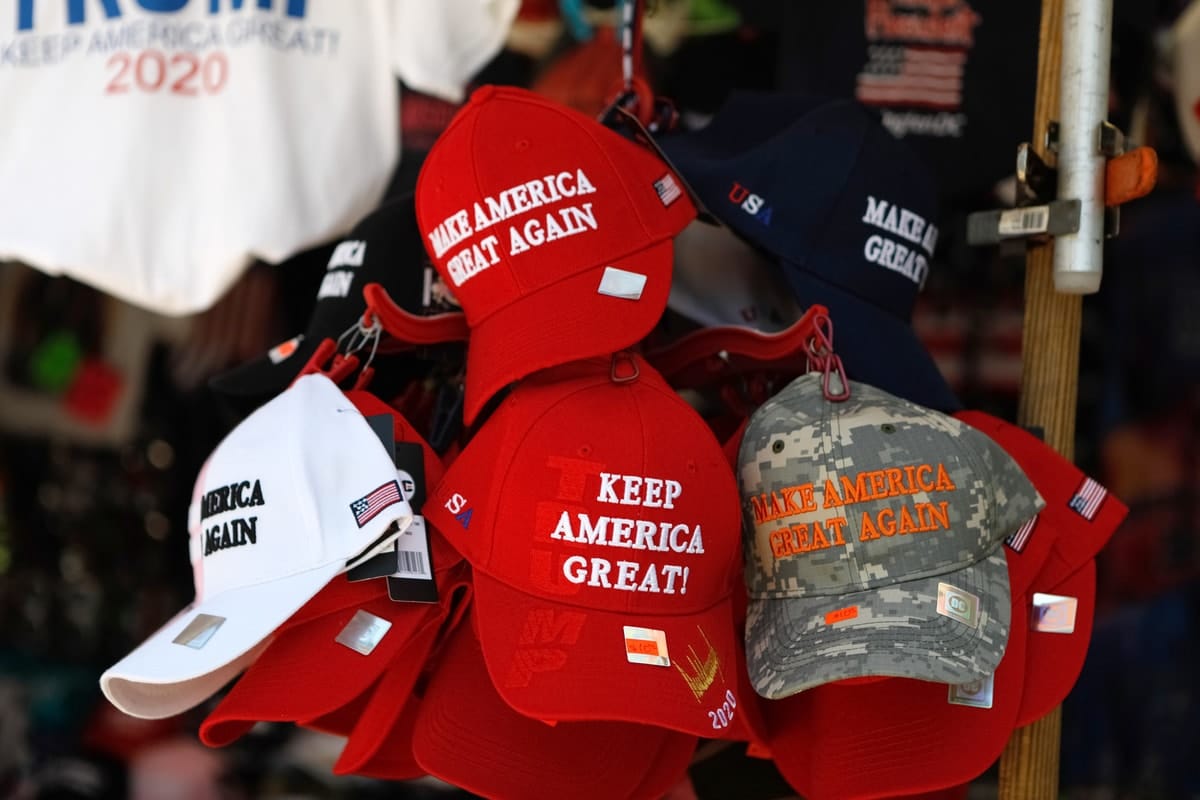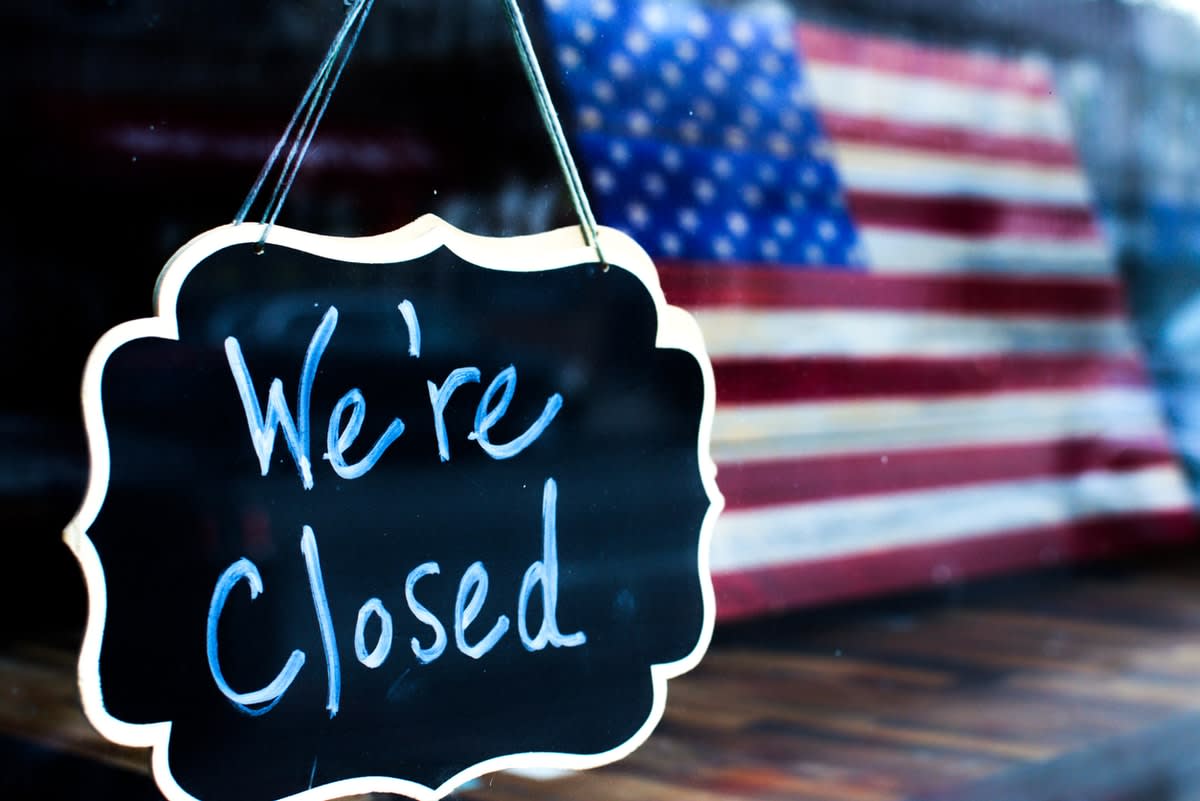
Certainly, 2020 has been a tumultuous year, and the United States has arguably been the epicentre of the political chaos.
From the outbreak of COVID-19 to the Black Lives Matter movement, President Donald Trump has consistently been in the spotlight for his haphazard (to say the least) responses to these events. This is not to mention the scandal surrounding Trump’s impeachment trial, the claims that he knew of Russian bounties on the lives of US soldiers, and the commutation of prison sentences for associates such as Roger Stone.
While Trump’s prospects for re-election this November have fallen off a cliff since March, the fractured political divide in the US has widened. Nearly all Republicans in Congress have lined up behind the President, while Democrats are consistently united in opposition. Truly, this could be the most partisan Congress in US history.
Such partisanship would have the US’ first president, George Washington, who abhorred parties and factions, turning in his grave. In a similar vein, fellow Founding Father and third president Thomas Jefferson once stated: “If I could not go to heaven but with a party, I would not go there at all.”
Granted, this was before Jefferson himself became a partisan.
More horrifying to the Founding Fathers, however, would be the manner of governance embraced by the Trump administration. Truly lost on the incumbent are many ideals instilled in the US constitution and Declaration of Independence, while the Trumpian view of America is blinkered by a narrow understanding of US political history and philosophy.
Further, Trump is blind to the Republican Party (GOP) of old. In its place, he’s rebuilt the party in his own image.

Trump and power
At the birth of the United States, the Founding Fathers instilled the philosophies of great thinkers like Locke and Montesquieu into the new American republic. Indeed, Jefferson, the principal author of the Declaration of Independence, imbued the right to “life, liberty and the pursuit of happiness” into its text – ideals that can be traced to John Locke.
Locke, a 17th-century English philosopher, contended that all humanity was created equal and independent, and that civil society was created to resolve conflict to ensure collective rights. He posited that human nature is characterised by the virtues of reason and tolerance. Here, Locke differs from his countryman Thomas Hobbes, who instead saw the natural state of “the life of man [to be] solitary, poor, nasty, brutish and short”.
Yet, Locke and Hobbes agreed that human fallibility enables selfishness and the potential for power to corrupt. In this light, we can see some pitfalls of the Trump presidency. For one, rather than championing the Lockean ideals of reason and tolerance, Trump is the embodiment of selfishness – from his more consequential acts of pardoning criminal associates, to his petty need to promote his properties while in office.
Beyond his philosophy of man, Locke was an advocate for the separation of powers between branches of government. It was Montesquieu, however, who presented the distinct separation between the legislature, executive and judiciary adopted by the US in its constitution. Congress, the presidency and the Supreme Court are established in Articles I, II and III of the constitution, respectively, with the extent of each branch’s power defined.
President Trump’s ignorance of the separation of powers has the potential to set a dangerous precedent whereby the presidency asserts strength unmatched by Congress and the courts.
Balance between the branches of government has been ever-fluctuating. Until the 20th century, the president often played second fiddle to the machinations of Congress on Capitol Hill. The modern assumption that the presidency is at the centre of US political affairs dates back to Theodore Roosevelt and Woodrow Wilson, progressives from opposing parties, who more openly advocated for pet policies than their predecessors.
Donald Trump, however, takes presidential supremacy to a new level. Not only does Trump lambast Congress in a more aggressive vein than his predecessors, but he denigrates members of Congress for opposing him. Perhaps more concerning, Trump has openly advocated for Supreme Court stacking to promote his agenda above any semblance of jurisprudence – while he complains when the Supreme Court defies him.
President Trump’s ignorance of the separation of powers has the potential to set a dangerous precedent whereby the presidency asserts strength unmatched by Congress and the courts.
The Grand Old Party (of Trump)
The GOP boasts unmatched success in presidential elections. Despite being 25 years younger than the Democratic Party, Republicans have won more presidential elections (24 election wins to the Democrats’ 22).
Consequently, the line of Republican presidents preceding Trump includes several hallowed names, from war leaders such as Abraham Lincoln, to war heroes Theodore Roosevelt and Dwight Eisenhower. These presidents were not without their troubles, their shortcomings or their mistakes, yet their reputations loom large as being honest men of integrity seeking to better the nation.
Take Theodore Roosevelt as an example. He was a hero of the Spanish-American War who, in office, sought to break apart business monopolies while endeavouring to “speak softly and carry a big stick” in foreign affairs. However, he wasn’t without his foibles. He was an egomaniac who, although open to debate and discussion, felt personally wronged by any opposition to his ideas.
That being said, Roosevelt understood that loyalty to country came before loyalty to any person, stating: “Patriotism means to stand by the country, it does not mean to stand by the President.”
This notion does not ring true for President Trump.
In the contemporary GOP, loyalty to the man appears paramount. During the 2016 presidential campaign, Sarah Palin denigrated Republicans Against Trump as RATs. More recently, Republican senators such as Lisa Murkowski and Mitt Romney, among the more likely to criticise the President, have been denigrated and targeted by “loyal” Republican activists.
These points are not made to imply that Trump has changed the GOP all by himself. Rather, Republican ideas have drastically changed over the course of the past 120-odd years that most of their support comes from a small set of viewpoints.
Supporters are a brick wall of solidity committed to his cause. Yet, as November approaches, the President’s winning coalition may be waning.
Theodore Roosevelt, and several of his predecessors, were Republicans of a liberal, progressive vein. Such Republicans no longer exist. For decades, the battle for the soul of the GOP has been between moderates and conservatives. By contrast, conservative Democrats are a dying breed, with moderates and liberals now vying for party control.
Donald Trump arrived on the Republican scene in 2015, when conservatives within the GOP had ascended to supremacy. The party was ripe for a brash populist to seize the moment by speaking simple ideas that resonated with the party’s conservative base.
The Republican rank and file has been incredibly loyal to Trump over the past four years. Supporters are a brick wall of solidity committed to his cause. Yet, as November approaches, the President’s winning coalition may be waning.
Cracks beginning to show?
The ongoing COVID-19 pandemic has shaken Trump’s support. In late March, his net approval ratings (according to RealClearPolitics polling average) was -2 (47.3 approval, 49.3 disapproval. Now, this figure is -14.6, with 56% of Americans disapproving of his presidential performance (as at 10 July, 2020). Also, Trump has fallen further behind Democratic nominee Joe Biden in polling for November’s presidential election – currently down by about nine points.
Republican unity behind the President is, at least to an extent, wavering.
Beyond the expected hesitancies of senators Romney and Murkowski to support the incumbent, senators Chuck Grassley, Lamar Alexander and Susan Collins have announced they won’t be attending the Republican National Convention in Jacksonville – the marquee launch of Trump’s campaign.
Adding further stress to Team Trump, former national security advisor John Bolton, previously in the President’s inner circle, released a scathing memoir of his time in the Trump administration, while Mary Trump published her own critique of her uncle.
Hundreds of former Republican officials from the George W. Bush administration launched a fundraising PAC (political action committee) named “43 Alumni for Biden”. Colin Powell, former secretary of state to President George W. Bush, has endorsed Joe Biden, as have other prominent Republicans, including former senator Jeff Flake and 2016 presidential candidate Carly Fiorina.
Additionally, organisations such as the Lincoln Project, run by current and former Republicans, have emerged as high-profile critics of President Trump, mobilised purely to ensure his defeat in November.
Although it’s premature to say that Trump will lose in November, his path to victory is slim. Losing additional support from Republican elders could be terminal to his floundering campaign.
What now?
The choice this November between Joe Biden and Donald Trump is among the most stark is US history. Pundits and commentators on the Democratic side will contend over the coming months that it’s a choice between inclusion and exclusion; between empathy and ego; between fact and fiction. Instead, Trump’s associates will contend it’s between the far-left and the silent majority.
Whatever way you look at it, the US is at a crossroads in its political destiny. Does it return to being a nation founded on truth and democracy? Or does it continue on a path of “fake news” and cults of personality?





